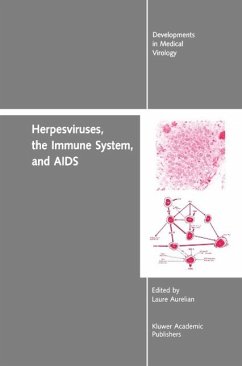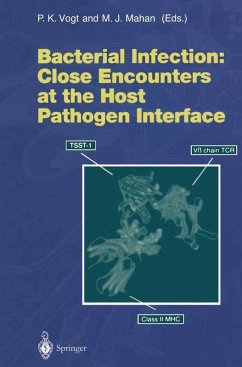
Bacterial Evasion of Host Immune Responses (eBook, PDF)
Versandkostenfrei!
Sofort per Download lieferbar
101,95 €
inkl. MwSt.
Weitere Ausgaben:

PAYBACK Punkte
51 °P sammeln!
Our survival as multicellular organisms requires the constant surveillance of our internal and external (mucosal) environments by the multifarious elements of the innate and acquired systems of immunity. The objective of this surveillance, expensive as it is to the organisms, is to recognise and kill invading microorganisms. Over the past fifty years the cells and mediators involved in our immune defences have been painstakingly identified. However, it is only relatively recently that the ability of microorganisms to evade immunity has been recognised and investigated. Bacterial Evasion of Hos...
Our survival as multicellular organisms requires the constant surveillance of our internal and external (mucosal) environments by the multifarious elements of the innate and acquired systems of immunity. The objective of this surveillance, expensive as it is to the organisms, is to recognise and kill invading microorganisms. Over the past fifty years the cells and mediators involved in our immune defences have been painstakingly identified. However, it is only relatively recently that the ability of microorganisms to evade immunity has been recognised and investigated. Bacterial Evasion of Host Immune Responses introduces the reader to the mechanisms used by bacteria to evade both humoral and cellular immune responses, using systems ranging in complexity from the simple quorum sensing molecules - acyl homoserine lactones - to the supramolecular syringe-like devices of type III secretion systems. This book will be of interest to researchers and graduate students in microbiology, immunology, pharmacology and molecular medicine.
Dieser Download kann aus rechtlichen Gründen nur mit Rechnungsadresse in A, B, BG, CY, CZ, D, DK, EW, E, FIN, F, GR, HR, H, IRL, I, LT, L, LR, M, NL, PL, P, R, S, SLO, SK ausgeliefert werden.













